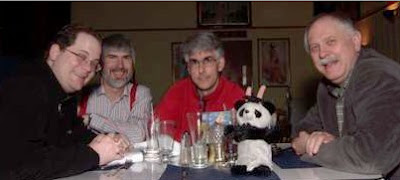The Federation of Law Societies of Canada should not accredit a new law school at Trinity Western University. Doing otherwise would be to endorse the university’s discrimination against gays and lesbians. The FLSC should also use this occasion to follow the lead of its American counterpart and adopt anti-discrimination standards for all law schools seeking accreditation.What's the problem? The problem is that Trinity Western University is a Christian college that requires that all students and staff adhere to certain "Christian" principles. Here's what they say in their Community Covenant.
This covenant applies to all members of the TWU community, that is, administrators, faculty and staff employed by TWU and its affiliates, and students enrolled at TWU or any affiliate program. Unless specifically stated otherwise, expectations of this covenant apply to both on and off TWU’s campus and extension sites. Sincerely embracing every part of this covenant is a requirement for employment. Employees who sign this covenant also commit themselves to abide by TWU Employment Policies. TWU welcomes all students who qualify for admission, recognizing that not all affirm the theological views that are vital to the University’s Christian identity. Students sign this covenant with the commitment to abide by the expectations contained within the Community Covenant, and by campus policies published in the Academic Calendar and Student Handbook.In other words, gays and lesbians are not going to be welcome at the Law School.
...
People face significant challenges in practicing biblical sexual health within a highly sexualized culture. A biblical view of sexuality holds that a person’s decisions regarding his or her body are physically, spiritually and emotionally inseparable. Such decisions affect a person’s ability to live out God’s intention for wholeness in relationship to God, to one’s (future) spouse, to others in the community, and to oneself. Further, according to the Bible, sexual intimacy is reserved for marriage between one man and one woman, and within that marriage bond it is God’s intention that it be enjoyed as a means for marital intimacy and procreation. Honouring and upholding these principles, members of the TWU community strive for purity of thought and relationship, respectful modesty, personal responsibility for actions taken, and avoidance of contexts where temptation to compromise would be particularly strong.
It seems pretty straightforward to me. As Veronica Abbas points out "FLSC doesn’t need to need to emulate or follow the precedents of any other countries1 law schools, it should insist that Trinity Western University follow the Canadian Human Rights Act and BC Human Rights Code as a prerequisite for accreditation" [No Gays Need Apply].
1. If I were interested in correcting her spelling and grammar, I might suggest "country's"—but I would never do that, it would get me in big trouble!











































